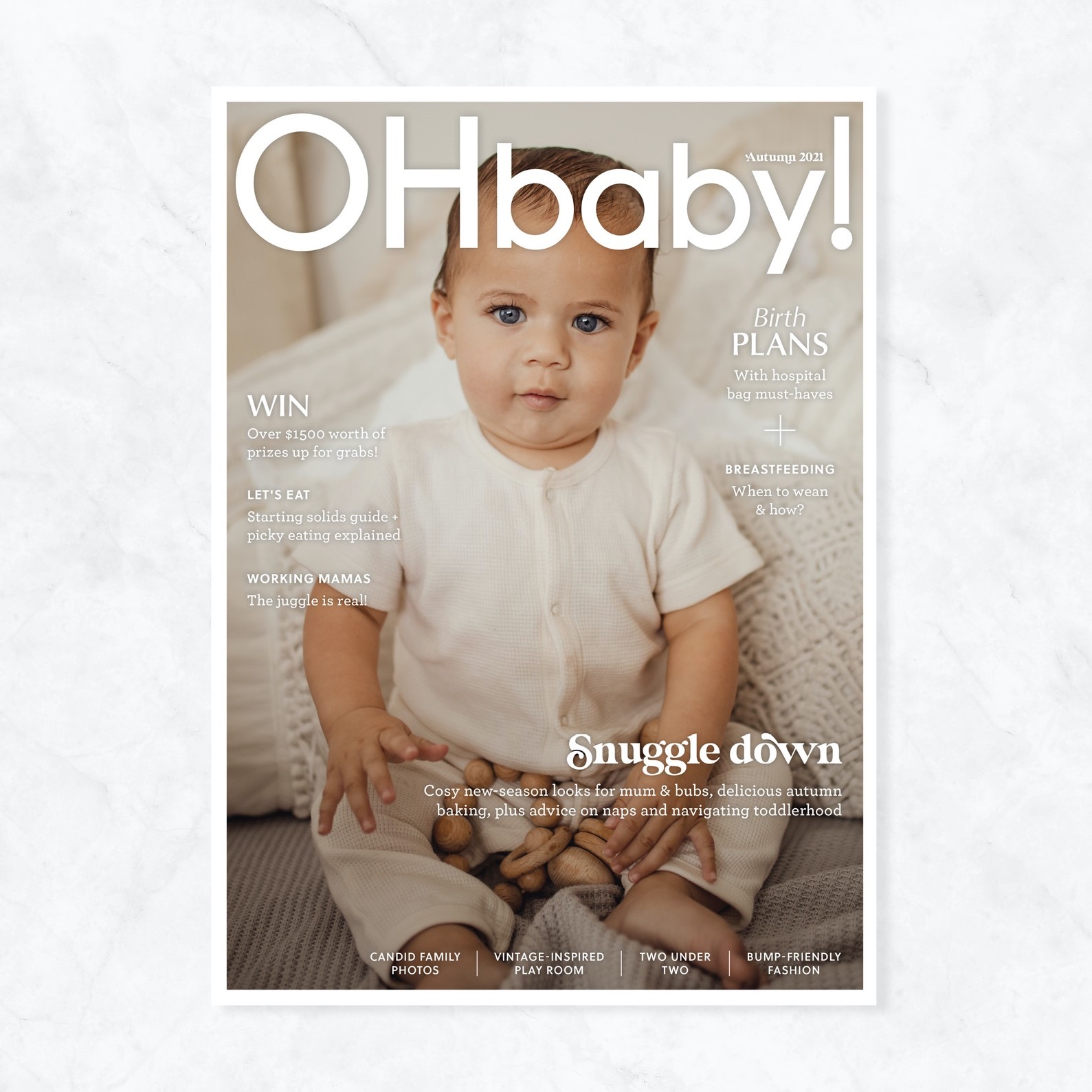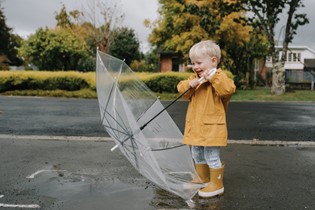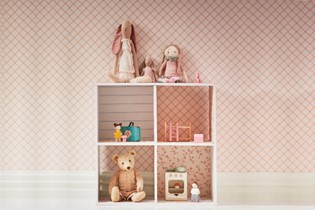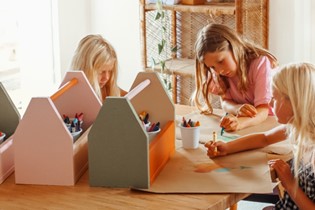Smartphones - are they good or bad for us?
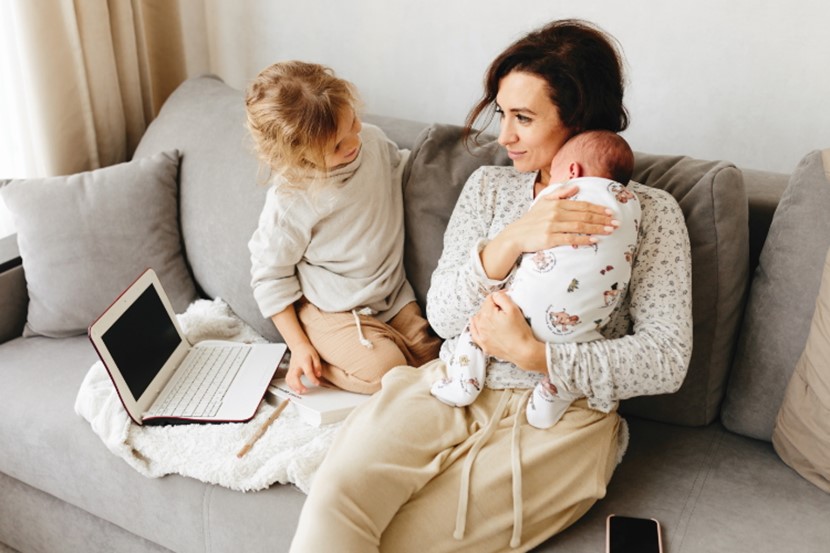
Smartphones – good or bad? Miriam McCaleb has discovered it’s all about context in terms of parenthood. Recent research from Georgetown University reminds us that they “boost or hurt wellbeing” depending upon when and how they are used.
When we think about a person’s smartphone use, we can study the pros and cons for the overall wellbeing of that individual. Doing so would remind us that smartphones can be great! They can help people to stay connected in real time, they can aid a person in emergency situations, and public health officials have found text reminders to be an economic and effective way to help people stay on track for things like immunisation schedules.
On the flip side, smartphone use can disconnect us from the people in the room, contribute to sleep problems and create challenges to our eyesight and posture. There is also evidence pointing to increased depression as a result of overuse. In the words of Jean Twenge, a psychology professor at San Diego State University and the author of iGen, a fascinating book about those raised in the age of the smartphone: “There’s lots of great things to do online, but moderation is often the best rule for life, and it’s no different when it comes to screens”.
Researchers have also found that different smartphone functions impact us in different ways. Specifically, Instagram has been found to negatively impact self-esteem, while (limited!) social gaming can reap rewards. In one 2020 study of more than 3000 people in Canada, "absent-minded use" predicted increased likelihood of depression, anxiety, stress and bad mood, while it decreased the occurrence of good moods and feelings of "flow". Other researchers find that using a smartphone’s internet-accessing capabilities to consciously enhance existing friendships and/or build new friendships can bring benefits, but only if the time spent online does not replace time in offline, real-life, kanohi ki te kanohi social interactions.
When and how. That’s what matters most
Most of us can probably recognise the truths in those findings. I’m pretty sure we all know what it feels like to lose ourselves down the rabbit hole of random clicks and runaway thinking. Author Catherine Price, in her awesome book How to Break Up With Your Phone, calls this “spirals of mindless swiping”. Compare what it feels like to scroll aimlessly compared to what it’s like reading a message from a friend, written just for you. Yeah, no doubt! One of those examples boosts our wellbeing and the other hurts it.
Already we see some pretty powerful examples of what researchers mean when they talk about the when and how of smartphone use as being the key details that impact our wellbeing.

But when we are talking about the smartphone use of baby-mamas, there is a whole additional person being impacted by that phone use. Now we consider the equation of whether smartphone use is hurting or helping with a heftier weight down one end of the scales. It is no longer just a question of our own eyesight, posture or anxieties, it is also vital that we consider the ways smartphone use can interrupt the connection between parents and children. This is major, with implications for child development that may last well into the future.
Babies need attentive care: they need responsive adults, touch and talk. The brains inside our 21st century skulls are largely unchanged from those of our ancestors, since about 250,000 years ago. Evolutionarily, our babies’ needs are the same as they were when we lived in caves. They need our warm bodies, our protection and affection. They grow best when they are spoken to, sung to and snuggled.
The good news is that not many of us have to raise our babies in a cave anymore. All hail indoor plumbing! The bad news is, as we gained running water most of us lost the benefits of our social way of living. Once upon a time, a new mother would have been surrounded by whanau – grandparents, cousins, aunties – providing company, protection and snacks.
These days she may be juggling a professional life and probably spends hours every week maintaining her non-cave home. If she’s lucky, she has family and community around to support her in the work of wrapping her babies in a relationship bubble of love and warmth. Nonetheless, there is a chance that she also spends quite a lot of time home alone with her baby.
This scenario is not fun for some mums, nor is it easy for everyone. Some new mothers talk about being bored and some describe being lonely. There are mums simultaneously handling their work life – maybe running a business from home, perhaps needing to maintain a social media presence in order to keep that business alive. It’s little wonder that smartphones are a part of most new mothers’ lives. Again, it’s the when and how of this habit that will determine the extent to which it helps or harms – both mum and babe.
Let’s take the example of caregiving routines, specifically infant feeding (whether breast or bottle). Researchers from the USA found that more than 90% of the women in their study used their smartphones while breastfeeding. Closer to home, the research team I’m part of at the University of Canterbury studying Kiwi mums’ phone use found that the vast majority of new mothers in our sample were “highly likely” to use their phones during feeding routines.
The inconvenient truth is that this super tempting habit is not great for babies. I know – early infant feeding can feel never ending, maybe even unproductive – but the fact is that the eye contact, gentle touches and chat of feeding routines are extremely important for helping children learn language, and more. Intimate, attentive care routines foster secure relationships, which themselves support optimal brain growth in our babies.
What’s more, researchers studying the impact of the “still face paradigm” found that we tend to have a blank, still face when we are using our phones, and that this is really stressful for babies. Using our phones during feeding routines can also contribute to missing an infant’s cues for satiation (a wee baby’s version of saying “I’ve had enough milk, thanks Mum!”) This can lead to overfeeding, which is associated with obesity and other health problems later in life.
We also know that some women are reaching for their phones because they feel lonely, and while some smartphone use has been shown to help a new mother to feel less lonesome, more than two hours of smartphone use in a day has been shown to make her feel more lonely. Alas, data tells us that most new mothers seem to use their phones for more than two hours per day, suggesting that their smartphone habits will be making them feel more, not less, lonely.
So, for the benefit of mamas, we do well when we are deliberate with our phone use. And for the benefit of those we live with and love, we create healthier relationships when we consciously avoid 'technoference', that is, the interference of technology on our relationships.
This matters more to young babies than to anyone else. They're building their attachment patterns that will influence all future relationships. They’re forming imprints, building templates and setting trajectories. The rapid brain growth of babyhood makes each moment oh so valuable. It’s up to the adults in each baby’s life to try and provide more experiences that are about warm connection, fond smiles and sparkly eyes, and fewer experiences of gazing at the back of a parent’s smartphone.
Let’s use our smartphones wisely, so that they serve our lives and don’t overtake them. For our babies, and for ourselves.
SO HOW DO WE USE IT WISELY?
Aim for less than two hours of smartphone use per day, in order to reduce feelings of loneliness. Your phone is likely to have a screen-time tracking feature, and if it doesn’t, there are various free apps that can help you keep an eye on how much you’re using it each day (eg Moment).
Try to keep caregiving routines device-free. This might mean aiming for no phones during infant feeding. As your children grow it might mean avoiding giving them devices to distract them from nappy changes (a habit which has been found to get in the way of developing optimal skills of self-regulation. It could also be a cue for getting phones off the dining room table.
Strive for mindful phone use, and mindful parenting. There is an abundance of resources available to help us practice techniques that increase our mindfulness – from observing our breath, to noticing our reactions, to practising stepping back and slowing down before we respond. (And yup, I get the irony here – searching online for tools that might help us stay offline!)
Think like an economist, tallying costs vs benefits. In this case, we are talking about the potential relationship cost of each interaction with a smartphone, vs the relationship benefit. For example, a quick text exchange to set up a face-to-face coffee date with a friend might have a relationship cost if it interrupts time with a baby, albeit for a brief minute – but it will have profound relationship benefits if the coffee date brings about connection and fills a mama’s tank. I’d suggest that’s worth it. Meanwhile, aimlessly scrolling through other people’s glamorous lives for hours at a time will have negative costs as it distracts a mother from her baby, while the benefits of that smartphone time are pretty much zilch. Costs vs benefits. This is especially relevant if we are striving to keep our phone use to below two hours per day.
Save it till they’re sleeping. If you can, keep all non-essential device use away from your awake baby, altogether. This can take real will and practise – and some self-compassion. If you’re finding it difficult to put down your phone, remember: that’s a design feature, not a bug. In his book Irresistible: The Rise of Addictive Technology and the Business of Keeping Us Hooked, author and professor Adam Alter points out how tech companies deliberately use techniques from behavioural psychology to keep us addicted to their products.
Try this: keep your phone in the next room, in your car or at least in your purse. Research has demonstrated that we are more attentive and intelligent when our phones are in another room. The hypothesis is that when our phones are around, we have to use part of our brain to simply resist their allure. When we know they’re not there, we can give more of our brain to the task at hand – like meeting the needs of our highly impressionable babies!
If you must use your phone, say “excuse me” and put it down when you’ve completed the task. And yes, say that to tiny babies, too. This will help get us into the habit of seeing phone use as the anomaly and real-life interactions as the norm.
Try lovingly enforcing some structure, such as 'life admin' sessions where you tackle all the email replies, grocery orders, photo sharing or status updates during one or two blocks of time per day/week (preferably when baby is asleep!)
Pro tips: turn off all non-essential notifications, turn off autoplay (eg on YouTube), and if things get dire, greyscale your screen.
Miriam McCaleb is a researcher, writer and mother. She lives and works in North Canterbury. Visit her at baby.geek.nz.

AS FEATURED IN ISSUE 53 OF OHbaby! MAGAZINE. CHECK OUT OTHER ARTICLES IN THIS ISSUE BELOW
